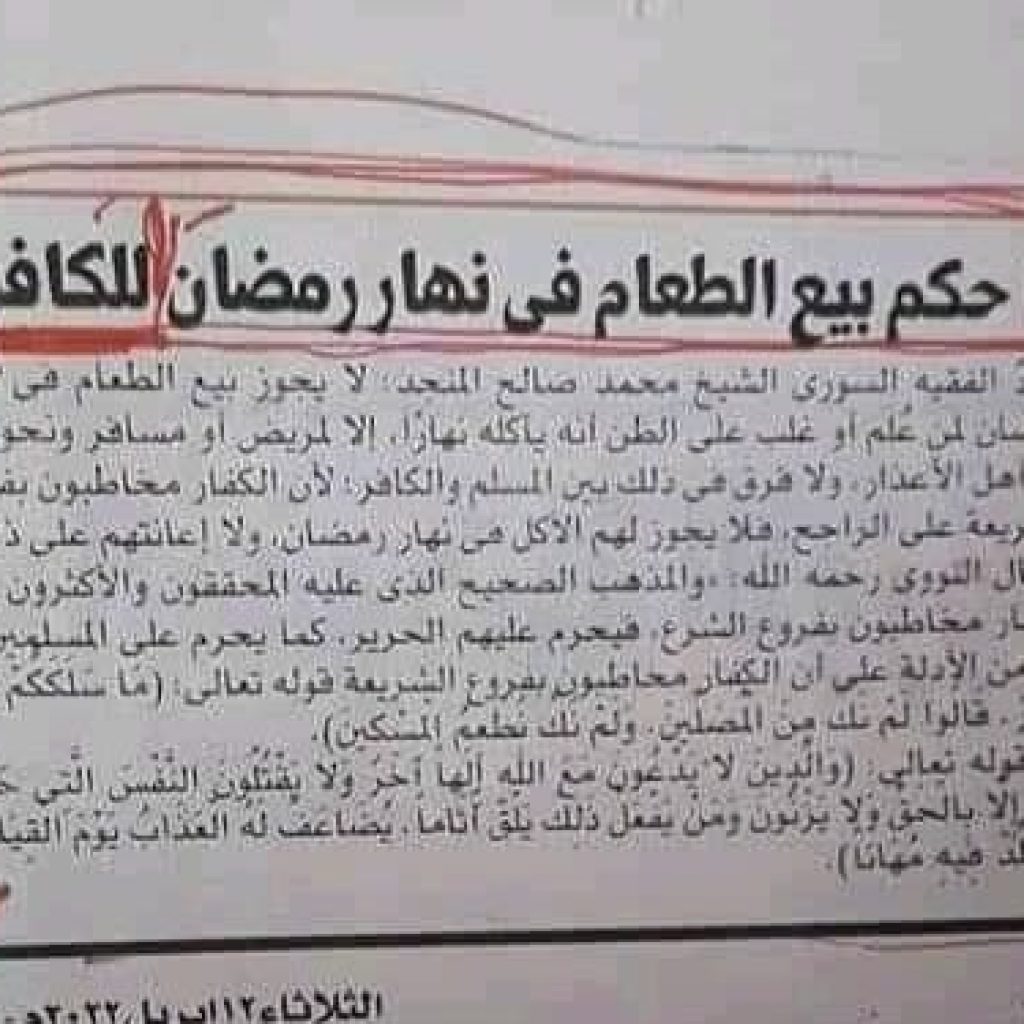By Raymond Ibrahim – for Coptic Solidarity –
On April 12, 2022, the popular Egyptian daily newspaper and website, al-Masry al-Youm (“the Egyptian Today”), published a fatwa by the Syrian cleric, Sheikh Muhammad Salih Munajjid, under the title, “What Is the Ruling on Selling Food to Infidels during the Daylight [Hours] of Ramadan?”
After offering the usual caveat—that such rulings do not apply to those who are sick, etc.—the fatwa concluded that selling food to those who might eat it during the daylight hours of Ramadan was forbidden, “and there is no difference [in this ruling] between the Muslim and the infidel.”
For supporting evidence, Munajjid quoted the popular Muslim jurist, Abu Zakaria al-Nawawi (b.1233), who wrote that “the true madhab that has been confirmed and agreed upon by the majority is that infidels are addressed by the branches of sharia, so that, what is forbidden to Muslims is forbidden to them.”
Munajjid also quoted Koran 74:42-47, which indicates that, because infidels go to hell for not believing in or following the rules of Islam, they are, therefore, clearly governed by them.
Thus, in the nation of Egypt—where more than ten million Christians, its most indigenous inhabitants, live—al-Masry al-Youm wants to make clear that they too must be prevented (by good Muslim grocers) from acquiring food in the daylight hours. (So much for the (Christian) idea that it is only for those who have faith to make sacrifices for their faith.)
While this fatwa ruling is not altogether surprising, what did shock many Egyptians is that al-Masry al-Youm —long seen as a secular, reformist daily newspaper that thrives on exposing and combatting Islamist intolerance—published it. The uproar from its readership, which includes not a few Coptic Christians, was such that hours after its publication, the Egyptian daily deleted the fatwa from its website and suspended the editor responsible for publishing it. The hardcopy newspaper, however, still carries it.

Despite al-Masry al-Youm’s actions and apology, many Egyptians remain skeptical. As Adel Guindy, a founding member of Coptic Solidarity, and author of the indispensable book, A Sword Over the Nile, observed:
The privately owned paper, long heralded as a flagship for “liberal” ideas (in the old, European sense of the term, not the current American sense meaning “leftist”) was recently taken over by Egypt’s “Deep State” as part of the regime’s frantic efforts to muzzle media and/or turn them into mere mouthpieces. This implies that all published news and opinion articles are carefully scrutinized prior to publishing, more so if it is for the print version. That fatwa is typical of hardline Islamists. For it to be published means that the journalist, the editor, and “censor” saw nothing wrong with it. And that’s precisely the sad part of the story: How the regime views non-Muslims as Kuffar [infidels], with all the ugly connotations that Arabic word carries.





